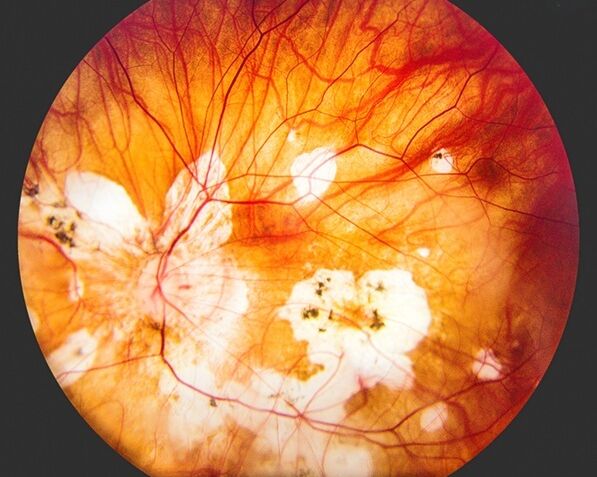Top priorities for research established across sickle cell and genomics

Genomics England, the Sickle Cell Society, and the James Lind Alliance have co-produced a Priority Setting Partnership (PSP) for Sickle Cell and Genomics – resulting in 10 priorities for future research which will encourage innovative research that has the greatest possible benefit for people with the condition.
Hundreds of people with sickle cell, carers, carriers and healthcare professionals across the UK and beyond contributed to the top 10. In doing so, the PSP provided a rare and valuable opportunity to bring the views of both people and professionals with real-life experience of sickle cell into research.
The 10 priorities for research are:
1) How can genomics identify new effective therapies for sickle cell that can prolong life or cure sickle cell?
2) Can genomics and genomic treatment predict, prevent or reduce severe sickle cell complications, such as organ damage, stroke and bone pain?
3) How can genomics help to decide the best treatments based on a person with sickle cell's genetic profile?
4) How can genomics improve acute and chronic pain management strategies for people with sickle cell?
5) Can genomics be used to better understand and avoid adverse reactions to blood transfusions?
6) What is the role of genomics in improving the management of complications and outcomes of sickle cell in older adults?
7) How effective is genomic treatment in reducing sickle cell milder complications that negatively impact day-to-day life such as pains, fatigue and susceptibility to infection?
8) How can clinicians translate genomics advances into personalised tailored treatments for sickle cell care?
9) What are the genetic factors that explain differences in responses to sickle cell medications?
10) What are the genetic factors and mechanisms linked to the triggering and frequency of a sickle cell crisis?
Developing the PSP
Sickle cell is a serious and lifelong health condition, with around 17,500 people in England living with it. It is the most common genetic blood disorder in the UK. The main symptoms are painful episodes called sickle cell crises, an increased risk of serious infections, and anaemia (where red blood cells cannot carry enough oxygen around the body), which can cause tiredness and shortness of breath.
The Sickle Cell and Genomics PSP was informed by a survey identifying many of the unanswered questions about the variations, predictability and treatment options of sickle cell from patient, carer and clinical perspectives. These were then reviewed and prioritised according to those that these groups agreed were the most important for research to address. The PSP brought these diverse groups together to identify the role that genomics can play in better understanding sickle cell and how research can bring the best outcomes to patients.
Genomics England supported the Sickle Cell Society to commission the PSP from the James Lind Alliance. This is the first PSP to look at priorities for sickle cell and the first that is completely focused on genomics.
The agreed priorities for research will be disseminated to stakeholders, researchers, and funding bodies to guide future research directions.
Tackling underrepresentation and supporting equitable outcomes
The work is part of Genomics England’s Diverse Data initiative – an ambitious programme aimed at tackling underrepresentation within health data and supporting equitable outcomes in genomic medicine. This included a strong focus on sickle cell, which disproportionally affects people from Black communities.
Genomic research is already having an impact for sickle cell patients, enabling the development of the most recent sickle cell treatment – Casgevy - a promising gene editing treatment that offers the prospect of a cure for the condition. The priorities for research established through the PSP will encourage similar progress that offers real hope for patients affected by sickle cell.
“We were delighted to work with the Sickle Cell Society and James Lind Alliance on this important initiative.
“Engagement with people living with sickle cell and those close to them provides valuable direction for research. Their perspectives help ensure that scientific efforts are aligned with real-world needs, supporting progress towards new treatments, improved outcomes, and meaningful beneficial impact for those affected.”
Professor Matt Brown
Chief Scientific Officer of Genomics England
“Our community has helped shape the future of sickle cell research. These priorities highlight where science can go next – using new understanding of genes and DNA to answer the questions that matter most to people living with the condition.
“Through the PSP, we’ve been able to give scientists and funders a clear sense of what’s needed. We look forward to seeing the impact of work in these ten areas, which we hope will lead to discoveries that change lives for generations to come.”
John James OBE
CEO of the Sickle Cell Society
“This PSP has demonstrated how it is possible, through thoughtful design and planning, to involve a wide range of people in sharing their hopes and priorities for genomics-based research into sickle cell. I’m proud to have worked with such a dedicated group of steering group members and I’m keen to see these priorities taken up by researchers and funders.”
Suzannah Kinsella
JLA Adviser for the PSP


